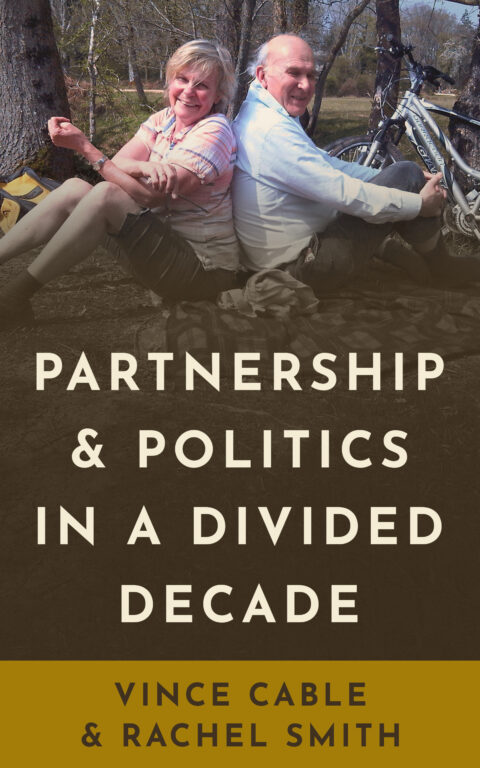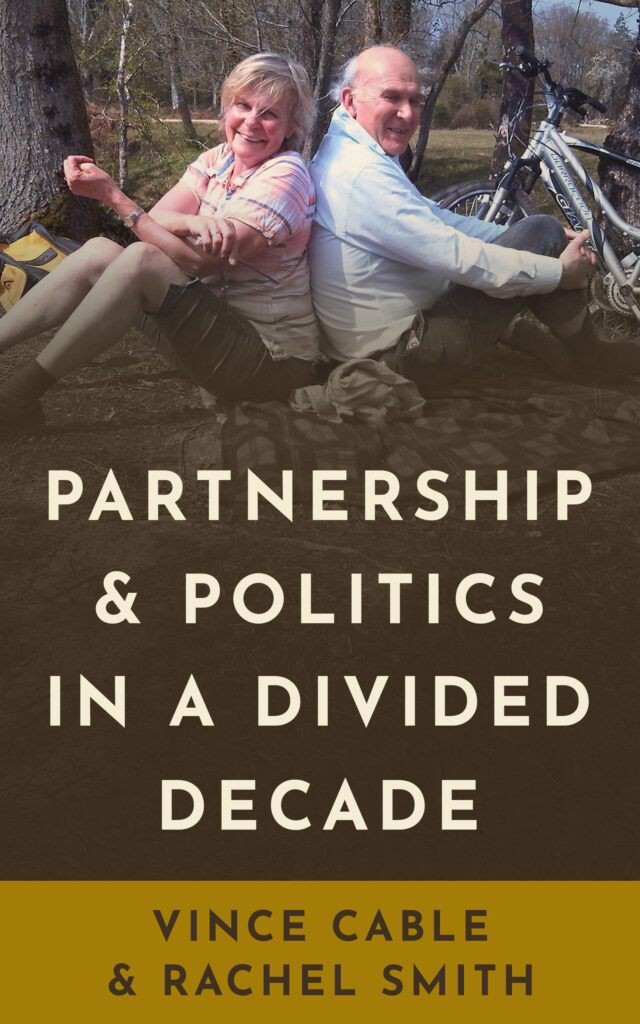
A divided decade: Vince Cable and Rachel Smith’s 2010s timeline

Or see the family trees of both families.
TIMELINE (2010-2019)
2010
- 14 April – Volcanic ash from Mount Eyjafjallajökull eruptions disrupts international travel.
- 6 May – General election. Conservatives (306), Labour (258) and Liberal Democrats (57). No party achieves the seats needed for a majority.
- 11 May – Coalition Agreement.
- 29 May – David Laws resigns from his role as Chief Secretary to the Treasury.
- 22 June – Emergency budget.
- 25 September – Labour elects Ed Miliband as leader.
- 20 October – George Osborne details a four-year spending cuts plan for government departments.
- 9 December – Student protests.
- 21 December – BSkyB situation.
2011
- 4 January – VAT increases to 20% from 17.5%.
- 5 January – HMV announces the closure of sixty stores.
- 19 January – The Health and Social Care Bill is introduced into Parliament.
- 9 February – Project Merlin.
- 11 March – Earthquake and subsequent tsunami in Japan, later leading to the Fukushima nuclear disaster.
- 11-13 March – Lib Dem Party Conference (Sheffield).
- 15 March – Uprisings begin in Syria.
- 2 May – President Obama announces the death of Osama bin Laden.
- 5-6 May – Elections are held for the Scottish Parliament, Welsh Assembly and the Northern Ireland Assembly. The Scottish National Party wins an overall majority in the Holyrood elections. Local elections are held on the same day. Conservative (35%), Labour (37%) and Liberal Democrats (15%). Voters reject proposals to change the voting system in the Alternative Vote referendum by 67.9%.
- 17-20 May – Queen Elizabeth II makes a state visit to the Republic of Ireland, the first by a reigning monarch of the United Kingdom since 1911.
- 10 July – The News of the World ceases publication.
- 22 July – Norway Massacre.
- 6-11 August – Riots take place in English cities.
- 20-28 August – Libyan rebels overthrow Muammar Gaddafi.
- 15 September – The Fixed-term Parliaments Act passed.
- 17 September – Occupy Wall Street protests begin.
- 17-21 September – Lib Dem Party Conference (Birmingham).
- 14 October – Liam Fox resigns as Defence Secretary.
2012
- 21 March – George Osborne delivers the 2012 Budget.
- 3 May – Local elections held in England, Scotland and Wales. Labour (38%), Conservative (31% and Liberal Democrats (16%). The first elections for police and crime commissioners take place, marked by low turnouts.
- 2-5 June – Diamond Jubilee bank holiday weekend.
- 27 June – Barclays Bank is fined after trying to manipulate interbank interest rates.
- 27 July – London opens the 2012 Summer Olympics.
- 29 November – Three by-elections – Croydon North, Middlesbrough and Rotherham.
2013
- 28 January – Government plans to redraw constituency boundaries before the next general election are defeated in the House of Commons by 334 to 292.
- – former government Minister Chris Huhne pleads guilty to perverting the course of justice.
- 5 February – the House of Commons votes 400 to 175 in favour of a vote on the bill to legalise same-sex marriage in England and Wales.
- 23 February – UK loses top AAA credit rating for first time in years after being downgraded by the ratings agency Moody’s.
- 28 February – the Eastleigh by-election. The Liberal Democrats retain the seat.
- 8 April – Margaret Thatcher dies.
- 21 May – MPs vote 366-161 in favour of the Marriage (Same Sex Couples) Bill
- 22 July – Home Office ‘Go Home’ vans begin to tour London.
- 27 August – David Cameron recalls Parliament from its summer recess to discuss responses to the Syrian crisis in the wake of a chemical weapons attack in Damascus.
- 29 August – MPs vote 285-272 against the principle of British involvement in any military intervention in the Syrian conflict.
2014
- 22 May – Local elections. Conservative (29%), Labour 31%) and Liberal Democrats (13%). UKIP sees significant gains in the European Parliament elections.
- 18-19 September – A referendum on whether Scotland should become an independent country takes place. Scotland votes 55% to 45% to remain in the United Kingdom. Alex Salmond announces his resignation as First Minister of Scotland.
- 26 September – MPs vote 524-43 vote in favour of endorsing Britain’s involvement in the US-led airstrikes against Islamic State.
- 27 September – Mark Reckless, MP for Rochester and Strood, quits the Conservative Party and defects to UKIP.
- 9 October – Clacton by-election, later won by Douglas Carswell, UKIP candidate. UKIP then has its first elected Member of Parliament.
- 14 November – Nicola Sturgeon succeeds Alex Salmond as Leader of the Scottish National Party.
- 3 December – As part of the Autumn Statement, George Osborne replaces stamp duty for home buyers with a graduated scheme.
2015
- 7 May – The 2015 general election. Conservatives (330), Labour (232) and Liberal Democrats (8). The Conservatives win an overall majority of 12 seats.
- 16 July – Tim Farron is elected as the new leader of the Liberal Democrats.
- 12 September – Jeremy Corbyn is elected as the new leader of the Labour Party.
- 25 November – Autumn Statement and Spending Review.
- 2 December – MPs vote 397 to 223 to authorise air strikes against Islamic State in Syria.
2016
- 20 February – David Cameron announces that there will be a referendum on the UK’s membership of the European Union on 23 June.
- 21 February – Boris Johnson announces he is to campaign for the UK to leave the European Union.
- 6 April – Junior doctors’ strike over pay disputes.
- 7 May – Sadiq Khan is sworn in as mayor of London.
- 16 June – Labour MP Jo Cox dies after attack.
- 23 June – UK referendum on European Union membership, with the result to leave the EU in a vote of 51% to 49%.
- 11 July – Theresa May is elected Conservative Party leader.
- 13 July – David Cameron officially resigns as Prime Minister, leaving the House of Commons later in the year.
- 15 September – The government approves the Hinkley Point C nuclear power plant.
- 24 September – Jeremy Corbyn is re-elected as leader of the Labour Party.
- 25 October – The government approves a third runway at Heathrow Airport. Zac Goldsmith MP resigns in protest.
- 8 November – Donald Trump elected as President of the United States.
2017
- 16 January – The power-sharing government of Northern Ireland collapses.
- 24 January – The UK Supreme Court rules against the Government’s Brexit appeal case by an 8 to 3 decision, stating that Parliament must vote to trigger Article 50.
- 1 February – MPs back the European Union Bill by 498 votes to 114, with 47 Labour rebels voting against.
- 3 February – The government publishes a white paper setting out its Brexit plans.
- 22 March – Westminster Bridge attack.
- 29 March – The UK invokes Article 50 of the Treaty on the European Union, beginning the formal EU withdrawal process.
- 18 April – Theresa May calls a snap general election.
- 4 May – Local elections. Conservative (38%), Labour (27%) and Liberal Democrats (18%).
- 22 May – Manchester Arena attack.
- 3 June – London Bridge attack.
- 8 June -General election. Conservative (317), Labour (262) and Liberal Democrats (12). The Conservative Party remains the largest single party but loses its overall majority.
- 14 June – Grenfell Tower fire.
- 26 June – Democratic Unionist Party supports Theresa May’s minority government on a supply and demand basis.
- 20 July – Vince Cable becomes the new leader of the Liberal Democrats.
- 11 September – In a Commons vote, MPs back the EU Withdrawal Bill by 326 to 290.
- 13 December – The government is defeated in a key vote on Brexit, with MPs voting in favour of giving Parliament a say on the final deal.
- 20 December – The EU announces that the UK’s Brexit transition period will end no later than 31 December 2020.
2018
- 4 March – Former Russian double agent Sergei Skripal and his daughter Yulia are poisoned with nerve agent in Salisbury.
- 29 April – Amber Rudd resigns as Home Secretary following the Windrush scandal.
- 3 May – Local elections. Labour (35%), Conservative (35%) and Liberal Democrats (16%).
- 19 May – The wedding of Prince Harry and Meghan Markle.
- 25 May – The General Data Protection Regulation (GDPR) comes into force.
- 23 June – Anti-Brexit campaigners march through London demanding a final vote on any UK exit deal.
- 12 July – The government publishes its White Paper on Brexit.
- 20 October – People’s Vote march attracts hundreds of thousands.
- 12 December – Theresa May wins a vote of no confidence on her leadership of the Conservative Party by 200-117.
2019
- 15 January – The House of Commons rejects Theresa May’s deal on the UK’s withdrawal from the European Union by 432 votes to 202.
- 16 January – Theresa May’s government survives a no confidence vote by 325 to 306.
- 25 January – The European Medicines Agency (EMA) closes its office at Canary Wharf.
- 18 February – Seven MPs – Chuka Umunna, Luciana Berger, Chris Leslie, Angela Smith, Mike Gapes, Gavin Shuker and Ann Coffey – announce their resignation from the Labour Party to form The Independent Group.
- 20 February – Three Conservative Party MPs – Heidi Allen, Sarah Wollaston and Anna Soubry – resign from their party to join The Independent Group.
- 12 March – The House of Commons rejects Theresa May’s deal on the UK’s withdrawal from the European Union for a second time.
- 14 March – MPs vote by 412 to 202 in favour of requesting that the UK’s withdrawal from the European Union be delayed beyond 29 March.
- 21 March – The EU agrees to delay Brexit until 22 May 2019, if MPs approve a withdrawal deal.
- 23 March – People’s Vote march.
- 10 April – The UK and the EU agree an Article 50 extension to 31 October 2019.
- 2 May – Local elections. Conservative (28%), Labour (28%) and Liberal Democrats (19%).
- 23 May – Elections to the European Parliament. Liberal Democrats and the Brexit Party make significant gains, winning 16 and 29 seats respectively.
- 24 May – Prime Minister Theresa May announces her resignation as Conservative Party leader, effective from 7 June.
- 3 June – US President Donald Trump begins a three-day state visit to the UK.
- 13 June – Chuka Umunna defects to the Liberal Democrats.
- 18 July – MPs vote again in favour of amendments to stop the next Prime Minister from proroguing Parliament.
- 22 July – Jo Swinson is elected as leader of the Liberal Democrats.
- 23 July – Boris Johnson wins Conservative leadership contest.
- 3 September – The government loses its majority in the House of Commons after Conservative MP Phillip Lee crosses the floor to join the Liberal Democrats.
- 10 September – Parliament is prorogued.
- 24 September – The Supreme Court rules unanimously that the prorogation brought forward by Boris Johnson is unlawful.
- 25 September – MPs return to Parliament after the ending of prorogation.
- 12-13 December – General election. Conservative (365), Labour (202) and Liberal Democrats (11). The Conservatives achieve an overall majority. Jeremy Corbyn and Jo Swinson resign as party leaders.
- 20 December – MPs vote in favour of the Brexit withdrawal agreement by 358 to 234, paving the way for the UK’s exit from the EU on 31 January 2020.
See the book!


